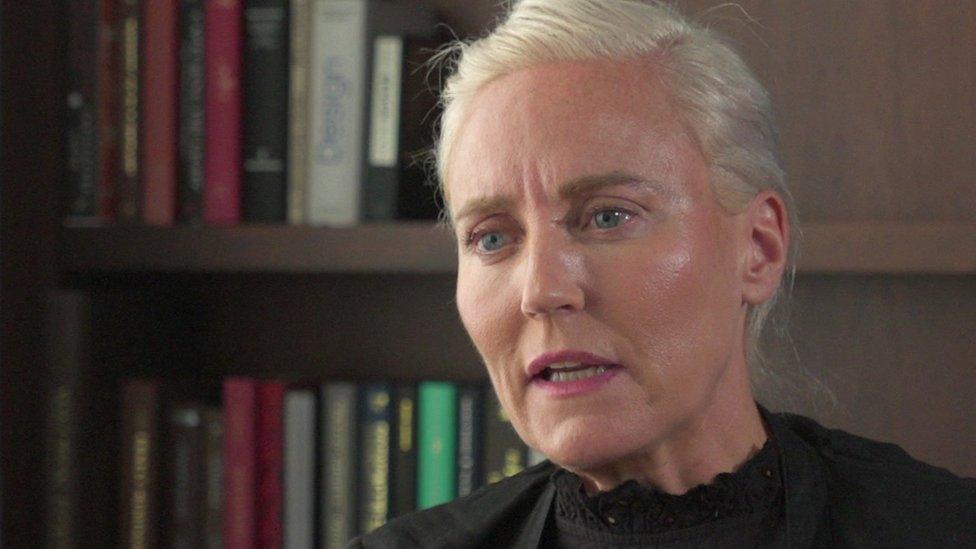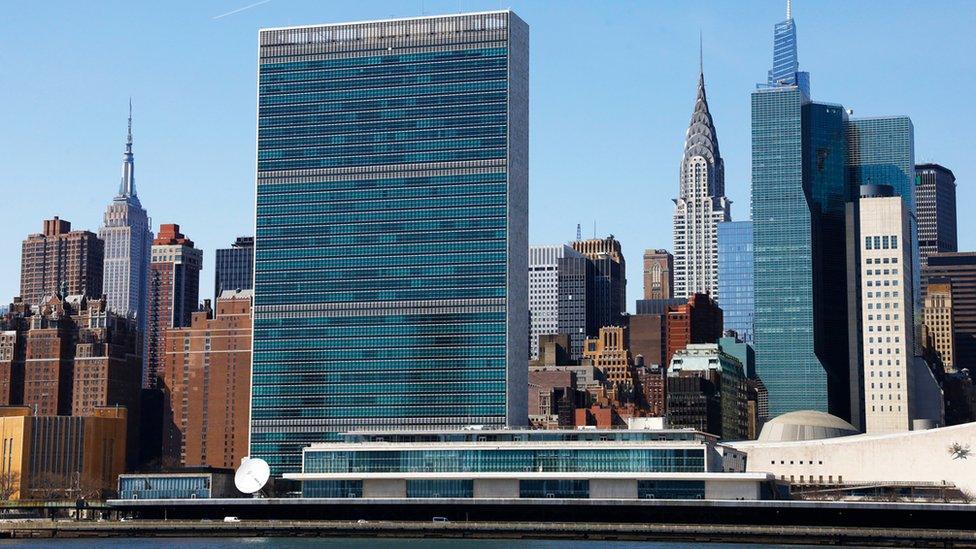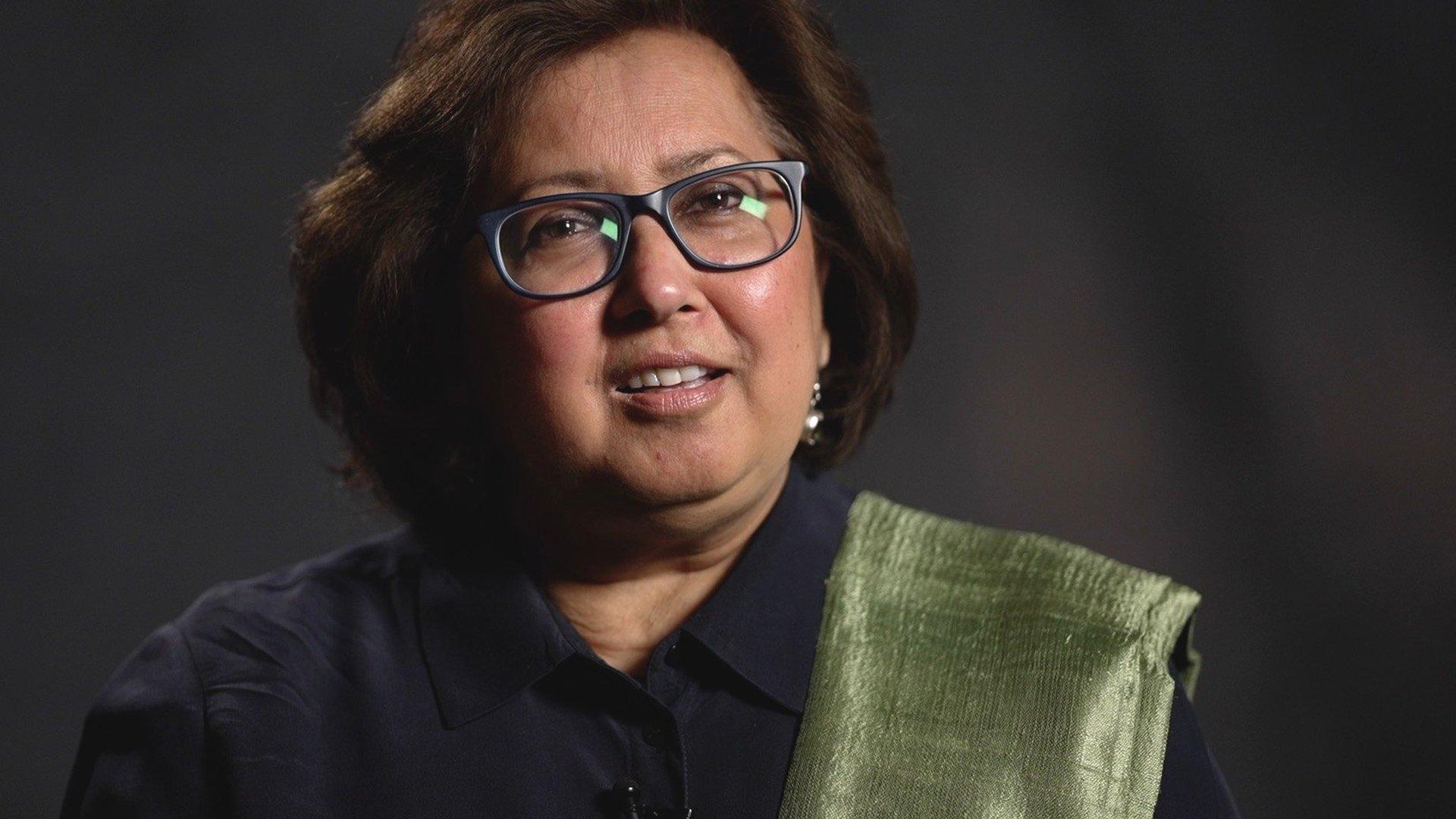UN insists it is tackling sexism 'head on' amid new allegations
- Published

Sinead Andrews says she was 'ostracised' after her complaints
The UN has said it is tackling sexual harassment, sexism and a male-dominated culture within its ranks "head on".
"We're all trying all the time to improve the system," the secretary general's spokesman, Stephane Dujarric, told the BBC's Newsnight programme.
More than a dozen past and present UN staff have told the BBC about misogyny and "a climate of fear".
A BBC report last month revealed the sacking of a number of staff who had tried to expose alleged wrongdoing.
The documentary, titled The Whistleblowers: Inside the UN, detailed allegations of sexual abuse, corruption, misogyny and management turning a blind eye to wrongdoing.
One former UN Senior Advisor, Sinead Andrews, has just come forward to speak for the first time about her experience. She says she was "ostracised" after making complaints while at the organisation - an allegation the UN denies.
Her performance record had always been "pretty strong", she told Newsnight, but after she "spoke up" for the first time, she "started hearing some feedback" that her performance "perhaps was being compromised".
"What I didn't expect was that the system that was meant to be protecting me, as I reported, wasn't there for me," Ms Andrews said. "And that's the most disappointing part of it".
After leaving the UN, she made an official complaint about her former boss, Fabrizio Hochschild, who was the under secretary general in New York in 2019.
In emails seen by Newsnight, she said he had "frequently reprimanded colleagues during team meetings which was demeaning and humiliating to whomever the particular target was that day".
"He also spoke to some senior female partners in a demeaning way," she wrote.
Mr Hochschild was "separated" from the UN last year after an internal investigation. He has repeatedly denied any wrongdoing and has called the allegations by Ms Andrews "false".

UN headquarters in New York, 2021
Other staff members who tried to report allegations told the BBC they had been penalised after speaking out and some had even been sacked.
Speaking on condition of anonymity, one senior female staff member said, "Women are treated inferiorly to men. Fact."
Some interviewees who took part in the BBC documentary lost their jobs after appearing in the investigation.
But Stephane Dujarric, who speaks for UN Secretary General António Guterres, denied that they had been sacked as a result of their contributions.
Asked about claims of sexual harassment and misogyny, Mr Dujarric said: "This is not an issue that we're ignoring, right? This is an issue we're tackling head on, that we have improved on."
Senior officials, he said, had been dismissed because of sexual harassment. "We've seen an increase in the number of people who have reached out to us through a hotline the secretary general's put in place through regular channels," he said.
He denied that staff were penalised for whistleblowing, saying that since Mr Guterres took office in 2017, "close to 50" people had received whistle-blower protection.
"People are not punished for speaking out and complaining," he said. "Like any organisation within the private sector, in the government, in the media, we are all trying to improve our culture and that is something people can come forward with and feel protected [when doing so]."
The secretary general, he said, had improved the gender balance in leadership roles: "We now have basically fifty-fifty parity of male and females at senior levels and of the secretary general's representatives in the field."
"We are looking at the problem of male-dominated culture head on," the UN spokesman added. "And Antonio Guterres has done everything that he can in his power to try to change that culture in the UN. It is not a finished project. It is a project that is continually being improved."
Related topics
- Published21 June 2022
